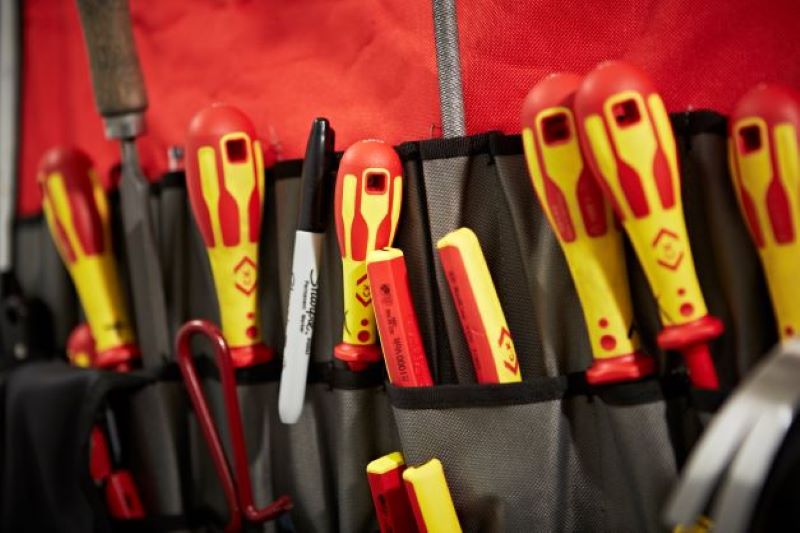
The opportunity to start your own business as an electrician is one of the biggest factors that attract many to the industry. Working for yourself gives you greater command over your work-life balance, and can often mean higher earning potential.
According to a recent study, electricians are among the top ten professions that have seen their demand increase throughout 2021. Given that surging demand right across the UK, now could be the perfect time to capitalise and begin down the path of working for yourself.
If starting your own business is something that you’ve been considering, here are a few of the big things to keep in mind, both before you’re up and running, and once you’ve launched your operation.
Experience and qualifications
Becoming a fully qualified electrician is the first step towards running your own business, and ensuring you’ve undertaken the required training with a provider recognised by industry regulators is vital when it comes to safely, and legally carrying out work.
Able Skills is an accredited centre, meaning all of our electrical courses are taught and certified to the latest regulations from City & Guilds and NET..
Typically, electricians who go on to start their own business, will have built a good level of experience working within the industry beforehand.
Commercial, domestic electrician or electrical contractor?
The environment you plan to work in will also dictate the level of training you require. A domestic electrician must complete a domestic installer course that covers topics such as Part-P regulations, wiring regulations, testing, electrical inspection and installation.
Anyone wanting to work in a commercial setting needs to be fully qualified, meaning you need an electro-technical qualification with a Level 3 NVQ Diploma in Electro-Technical Systems and Equipment or a level 3 NVQ Diploma in Electro-Technical Services.
If you plan on working on construction sites, you’ll need to register for a CSCS card. In most cases, this requires you to hold a recognised construction related qualification (usually NVQ or SVQ) and you need to have passed the CITB health, safety and environment test within the last two years.
There is also the option to work as an independent contractor. This means providing specialist services for an organisation under a contract for services. Independent contractors working within the UK should be aware of the IR35 tax legislation.
Registering your business
Making sure you’ve registered your business with HMRC is a crucial first step, and sorting this early can save you a lot of administration headaches further down the line.
This means deciding whether you want to operate as a limited company or a sole trader. Both options come with their own advantages and disadvantages—setting up as a sole trader is a more straightforward process, costs nothing, comes with less paperwork and your details and earnings aren’t publicly available.
Alternatively, as a limited company it’s generally easier to raise finance, and tax rates tend to be more favourable as you’re paying corporation tax as opposed to income tax. There’s also a legal distinction between you and your business, meaning if you get into debt your personal assets are not at risk.
For more advice on which business entity is right for you, visit the Gov.uk website.
Regulations and insurance
Holding the appropriate insurance is essential for both you and your customers. Public liability insurance is perhaps the most important, as it helps cover legal costs and compensation should someone be injured, or property damaged due to your work.
It’s also hugely advisable to look into personal accident insurance, as this will offer financial reassurance should you become injured and unable to work. It’s also worth considering tools insurance and vehicle insurance, protecting you should your property be stolen.
Marketing yourself
Going self-employed means you must be able to sell yourself.
Word-of-mouth remains a massive lead-generator when it comes to the trade industries, however, solely relying on this will hamper you in terms of attracting new business.
Having a social media presence and a professional-looking website is a must these days, as these will often be the first stop for clients considering your services. Traditional methods, such as signwriting vans and business cards can still be incredibly effective in getting your name out there too.
Begin your journey with Able Skills
If you’re ready to begin your journey towards becoming a self-employed electrician, the City & Guilds Combined Level 2 & Level 3 Electrical Course is the ideal programme for anyone entering the profession and looking to become fully qualified.
If you’re ready to begin your training, or need a little more information, give us a call on 01322 280 202, request a brochure or pop into our training centre for a chat.